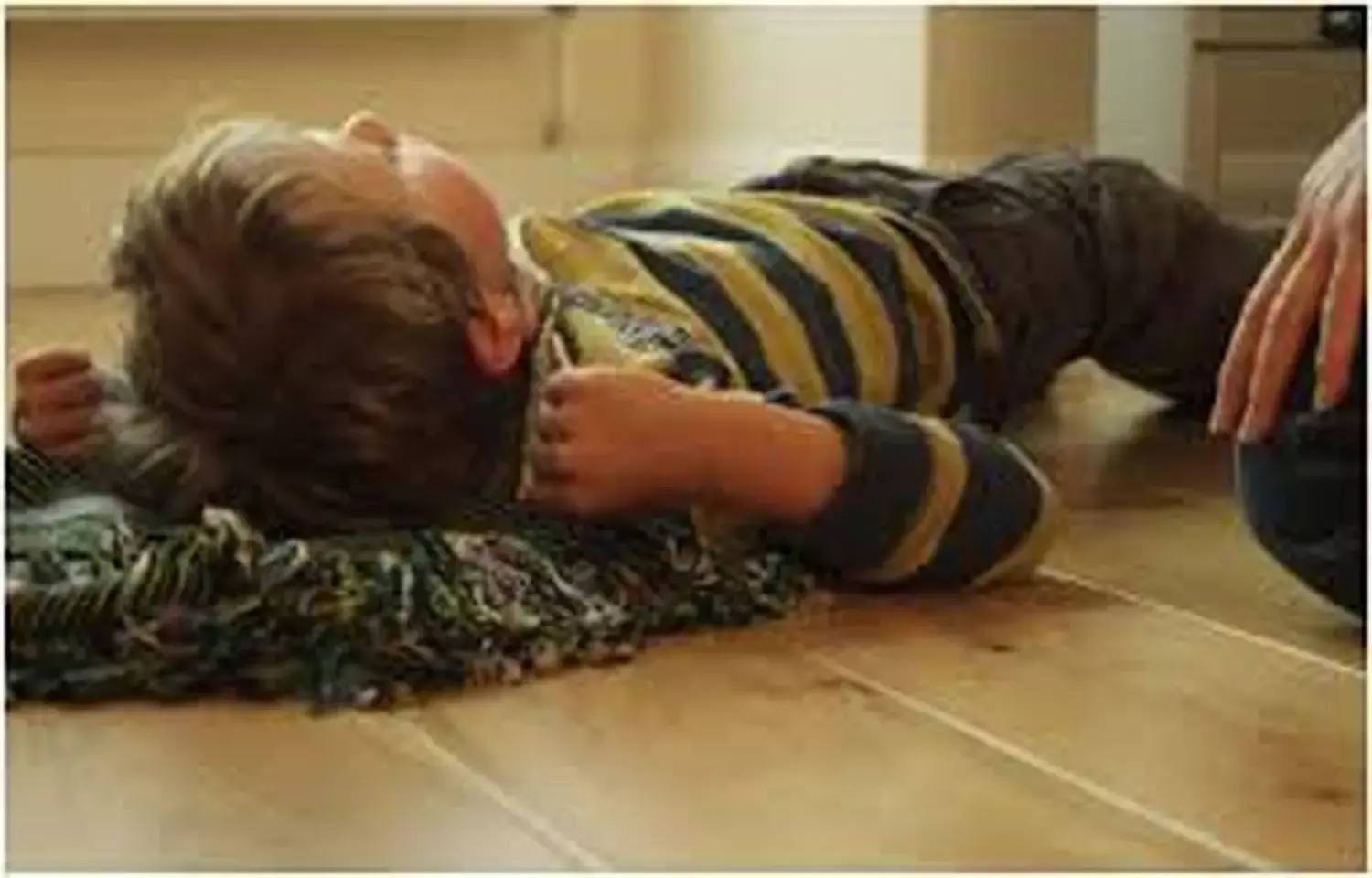- Home
- Medical news & Guidelines
- Anesthesiology
- Cardiology and CTVS
- Critical Care
- Dentistry
- Dermatology
- Diabetes and Endocrinology
- ENT
- Gastroenterology
- Medicine
- Nephrology
- Neurology
- Obstretics-Gynaecology
- Oncology
- Ophthalmology
- Orthopaedics
- Pediatrics-Neonatology
- Psychiatry
- Pulmonology
- Radiology
- Surgery
- Urology
- Laboratory Medicine
- Diet
- Nursing
- Paramedical
- Physiotherapy
- Health news
- Fact Check
- Bone Health Fact Check
- Brain Health Fact Check
- Cancer Related Fact Check
- Child Care Fact Check
- Dental and oral health fact check
- Diabetes and metabolic health fact check
- Diet and Nutrition Fact Check
- Eye and ENT Care Fact Check
- Fitness fact check
- Gut health fact check
- Heart health fact check
- Kidney health fact check
- Medical education fact check
- Men's health fact check
- Respiratory fact check
- Skin and hair care fact check
- Vaccine and Immunization fact check
- Women's health fact check
- AYUSH
- State News
- Andaman and Nicobar Islands
- Andhra Pradesh
- Arunachal Pradesh
- Assam
- Bihar
- Chandigarh
- Chattisgarh
- Dadra and Nagar Haveli
- Daman and Diu
- Delhi
- Goa
- Gujarat
- Haryana
- Himachal Pradesh
- Jammu & Kashmir
- Jharkhand
- Karnataka
- Kerala
- Ladakh
- Lakshadweep
- Madhya Pradesh
- Maharashtra
- Manipur
- Meghalaya
- Mizoram
- Nagaland
- Odisha
- Puducherry
- Punjab
- Rajasthan
- Sikkim
- Tamil Nadu
- Telangana
- Tripura
- Uttar Pradesh
- Uttrakhand
- West Bengal
- Medical Education
- Industry
Kids with Epilepsy Might Suffer Visuospatial Deficit, Claims Study

Visuospatial perception and visuospatial memory are two fundamental abilities for the correct human cognitive functioning, and allow each individual to adequately interact with the external world. In a study, researchers have found that children with epilepsy may have a visuospatial deficit and noted that different antiseizure medications can affect visuospatial memory differently. The research has been published in the European Journal of Paediatric Neurology on April 16, 2021.
Previous studies showed an impairment of visuospatial skills in pediatric patients with epilepsy. Pharmacological treatment, although indispensable for seizure control, could further affect cognitive functions. Therefore, Dr Francesca Felicia Operto and her team conducted a study to evaluate the visuospatial skills in children and adolescents with different forms of epilepsy well-controlled by antiseizure monotherapy, both at baseline and after a one-year follow-up, through a standardized neuropsychological assessment.
In this longitudinal retrospective study, the researchers included a total of 207 children and adolescents with epilepsy, well-controlled by monotherapy with levetiracetam, valproic acid, ethosuximide, oxcarbazepine or carbamazepine and 45 age/sex-matched controls. The children performed Rey-Osterrieth Complex Figure, a standardized test for visuospatial perception and visuospatial memory assessment, at baseline and after 12 months of drug therapy. The researchers evaluated the age, sex, executive functions, non-verbal intelligence, age at onset of epilepsy, epilepsy duration, epilepsy type, lobe and side of seizure onset. They also recorded EEG, seizure frequency, and drug dose.
Key findings of the study were:
- At baseline, upon Immediate Recall test, the researchers noted that the children in the epilepsy group performed significantly worse than controls. However, in the Direct Copy test, they noted no significant differences between epilepsy subgroups.
- They also noted that the immediate recall test was related to the age of seizure onset and epilepsy duration and, executive functions.
- Upon re-assessment after 1 year, they found that Immediate Recall mean scores were not significantly changed in the levetiracetam and oxcarbazepine group, while they significantly worsened in the valproic acid, ethosuximide and carbamazepine groups.
- They identified that Immediate Recall scores were correlated to age, age at onset of epilepsy, epilepsy duration, and executive functions.
The authors concluded, "Children with epilepsy may exhibit visuospatial memory impairment compared to their peer, that may be correlated to some features of epilepsy itself and to the impairment of executive functions."
They further added, "Different antiseizure medications can affect visuospatial memory differently, so it is important monitoring this aspect in pediatric patients."
For further information:
https://www.ejpn-journal.com/article/S1090-3798(21)00090-8/fulltext
Medical Dialogues Bureau consists of a team of passionate medical/scientific writers, led by doctors and healthcare researchers. Our team efforts to bring you updated and timely news about the important happenings of the medical and healthcare sector. Our editorial team can be reached at editorial@medicaldialogues.in.
Dr Kamal Kant Kohli-MBBS, DTCD- a chest specialist with more than 30 years of practice and a flair for writing clinical articles, Dr Kamal Kant Kohli joined Medical Dialogues as a Chief Editor of Medical News. Besides writing articles, as an editor, he proofreads and verifies all the medical content published on Medical Dialogues including those coming from journals, studies,medical conferences,guidelines etc. Email: drkohli@medicaldialogues.in. Contact no. 011-43720751


